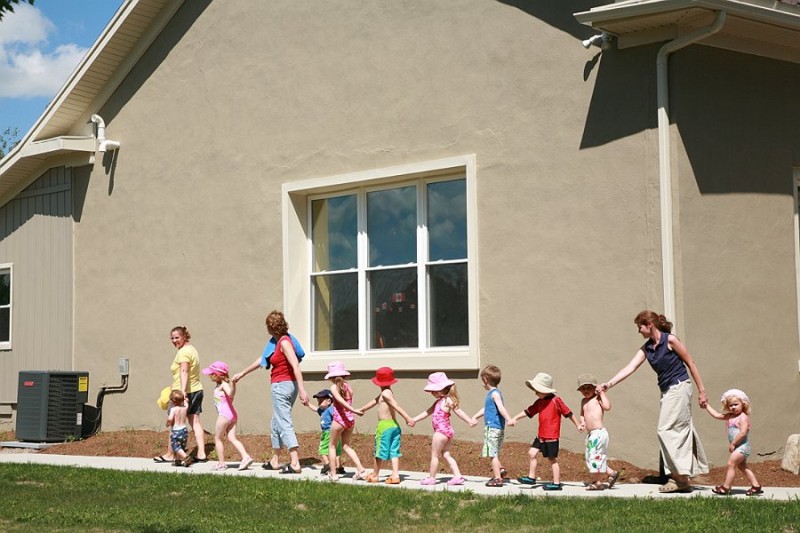A More Sociological View Of Wellness

Who has time to exercise and eat well when life is on overload? We are often urged by wellness professionals to exercise more and improve our diets, but isn’t that just adding more to the “to do” list? Without addressing the stressors in our lives, how can we fit the “demands” of being healthy into our lifestyle?
Of course people who succeed at being more active and eating nutritiously definitely are healthier. The question always comes down to what enhances or diminishes that success? Ask anyone and they will say that it’s usually the demands and stresses at both work and home that get in the way.
We know that people who are under excess stress suffer on both an emotional and physiological level. Stress either causes or exacerbates 80% of all illness. Higher rates of heart disease, diabetes, hypertension, cancer, headaches, insomnia and many other conditions are directly correlated with higher levels of stress. Yet it is mostly individual solutions that we are offered for stress reduction. Relaxation training, Yoga, and mindfulness/meditation classes, etc., are all wonderful when you feel you have time for them. Wellness experts are now asking us to consider bigger picture thinking and solutions that are cultural and systemic.
Each July at The National Wellness Conference in Wisconsin (http://www.nationalwellness.org/) , wellness program leaders from around the world come to learn more about what makes health promotion effective. This year a powerful theme from a number of speakers was almost an indictment of how we’ve been approaching wellness. Instead of urging a working mother to set aside even more time in a busy schedule to engage in exercise, they suggested we should be figuring out how to set up a childcare facility at work. An employee who has both young children and an aging parent to take care of might benefit more from access to affordable elder-care resources than from nutrition class. With more time and less anxiety self-care is more possible. Perhaps we need a more sociological approach to wellness.
For employers, this could mean examining how they are fostering or discouraging a culture of wellness. Are they eliminating barriers to their employees being healthy by providing flex time options, managerial support for participation in wellness programs, workday time for medical exams, and truly practical resources like childcare facilities?
For the individual, it might mean engineering their lives with their own health a priority. Sorting out the overload, the overwhelm, by filtering it through their values and priorities is a place to start. Who within their family, friendship circles, and larger community can help? What can truly be delegated or improved by the engagement of others? What resources does one need to seek out and discover?
 Strategic thinking can co-create new solutions.
Strategic thinking can co-create new solutions.
For the wellness coach it means avoiding the trap of simply setting up a bunch of fitness and dietary goals with our clients, that will require even more time and effort, and calling it adequate coaching. One of the “Four Cornerstones of Coaching” (http://www.amazon.com/Co-Active-Coaching-Skills-People-Success/dp/0891061231) is that coaching looks at the person’s whole life, not just certain select aspects of it.
The best coaching, and certainly the best wellness coaching is holistic in nature. We help our clients look at their life three-hundred and sixty degrees (that’s why we call our methodology Wellness Mapping 360°™). In that expanded world-view coaching can help our clients to:
• Increase their awareness of options/choices around them. We may help them to explore and discover community resources and services that are available to them that they weren’t aware of.
• We may help them work through their own internal barriers to asking for the help they need, at home, at work, etc.
• Engage in strategic thinking with us to examine options, come up with new perspectives, create new experiments, etc.
• Resolve ambivalence and provide the support and accountability to follow through and implement plans.
Sometimes a coach’s best work is on the emotional support level and sometimes it is on the really nuts and bolts practical and strategic level. We may, at times, function in a role almost like a social worker who connects people with the services they need in their community. We need to know what those services are so we know what to recommend. At the same time, we need to approach all of this in a coaching manner where we are keeping the client in charge of their own choices, and we are continuing to support their own journey.
Getting stress out of the way of living your life well looks different for everyone. We all need to be more compassionate with ourselves, and look for resources beyond our own hard work. We’re all in this together.
Please add a comment about how we can expand our notion of wellness to include this “bigger picture” thinking.








Only registered and logged in readers can leave comments.